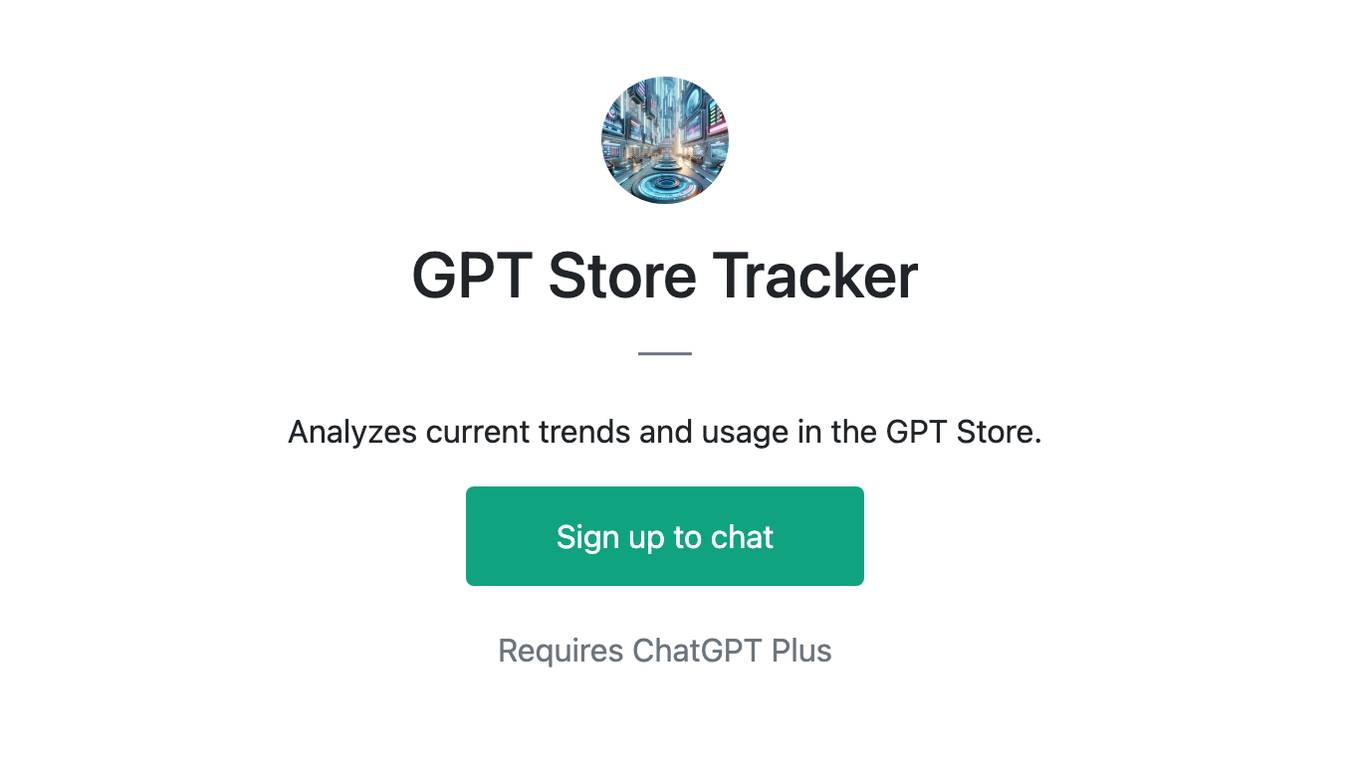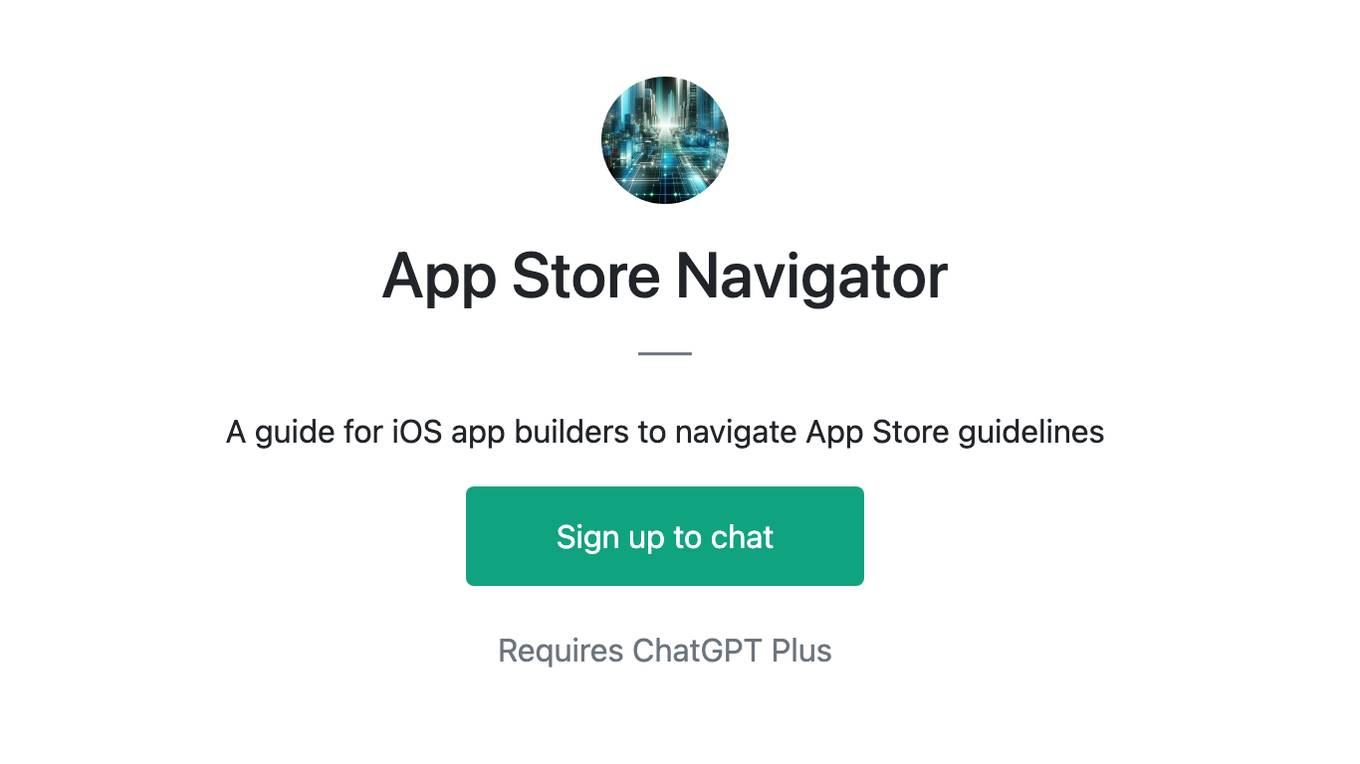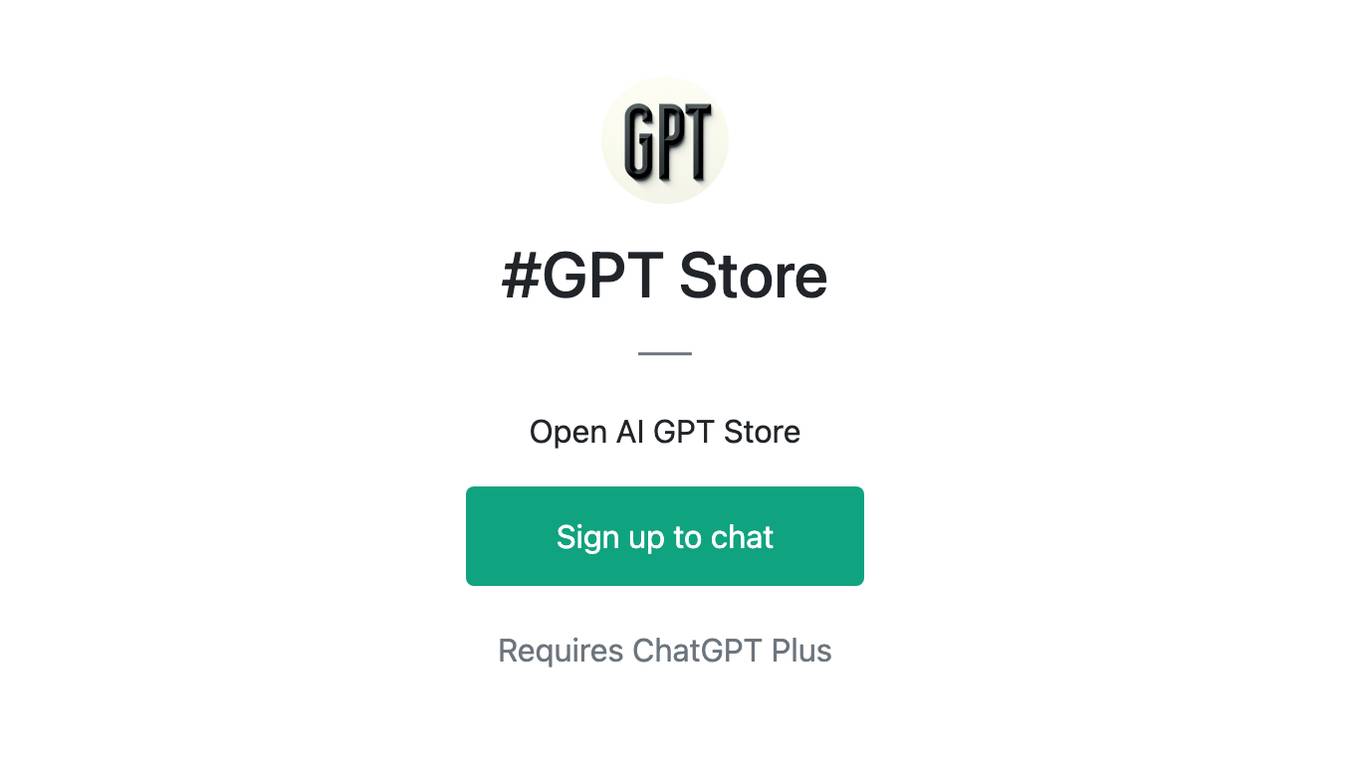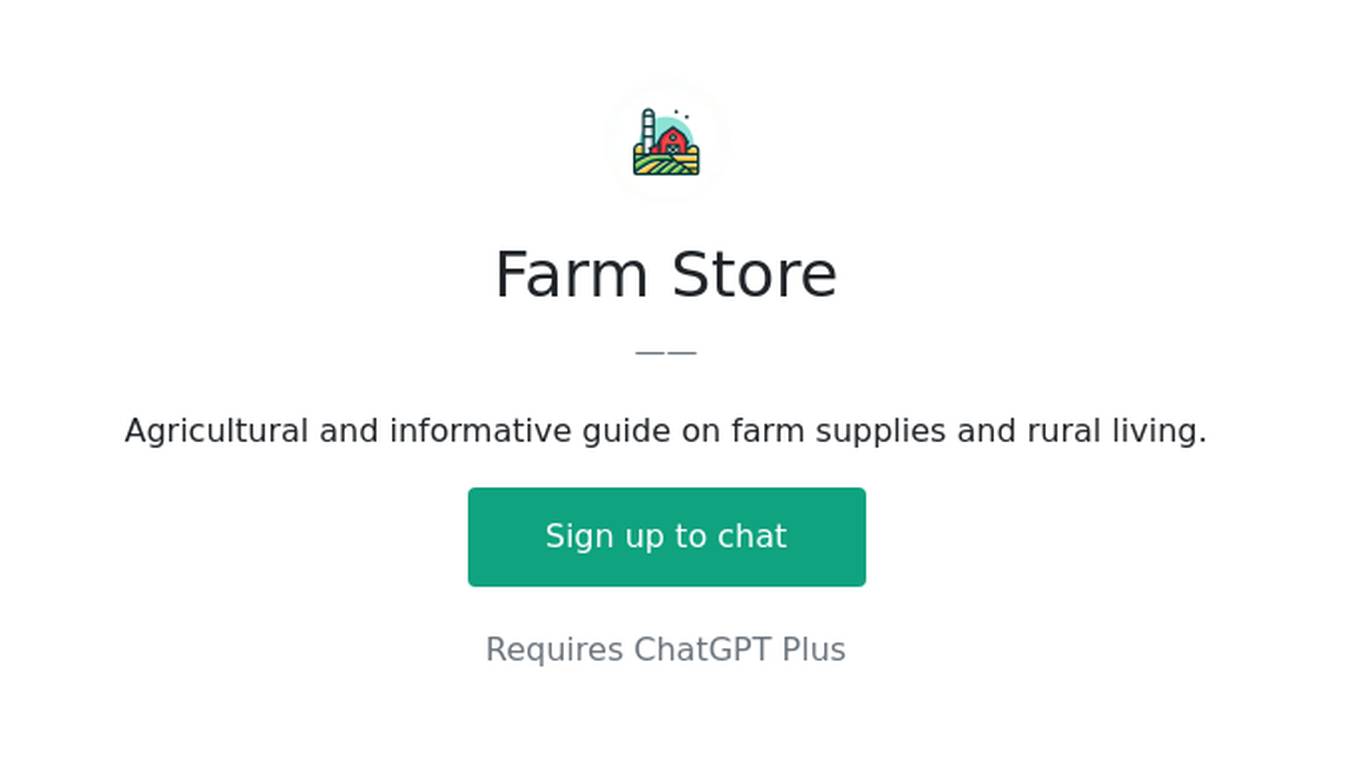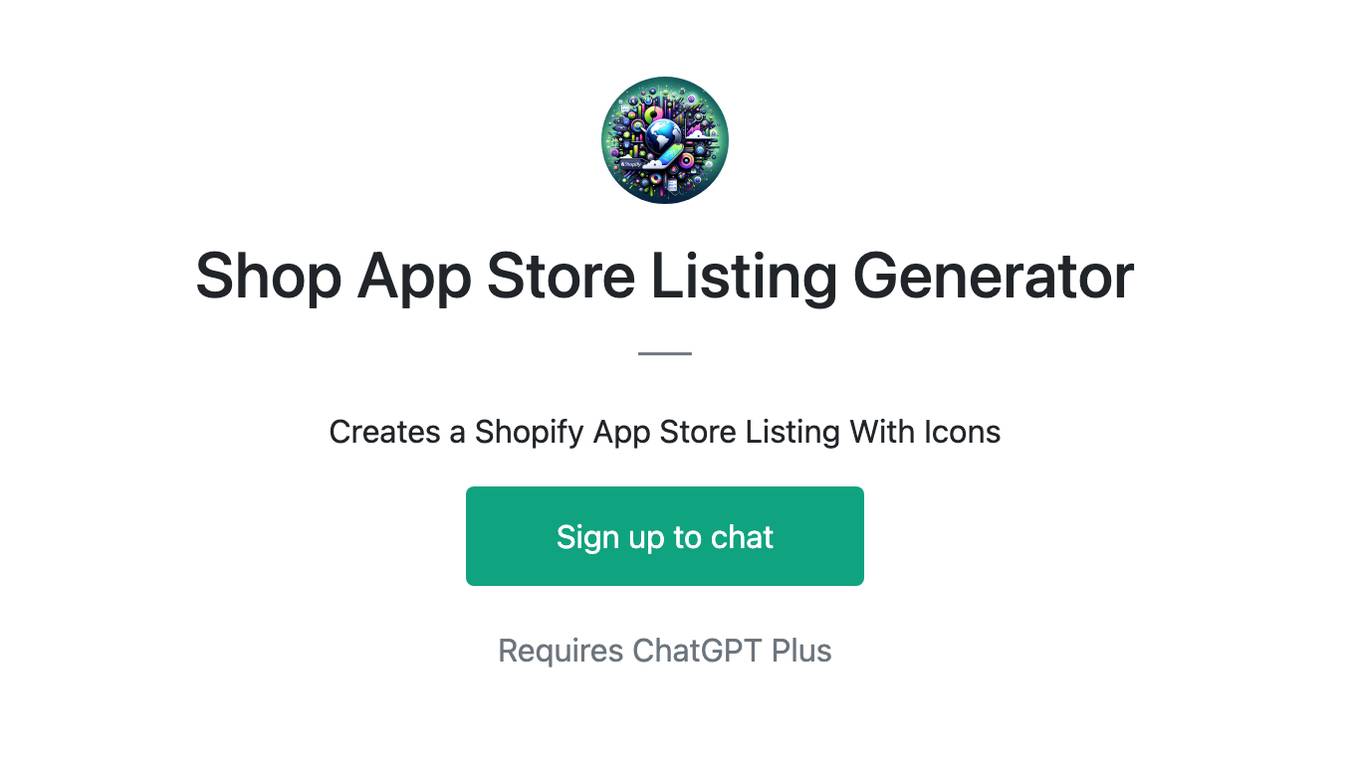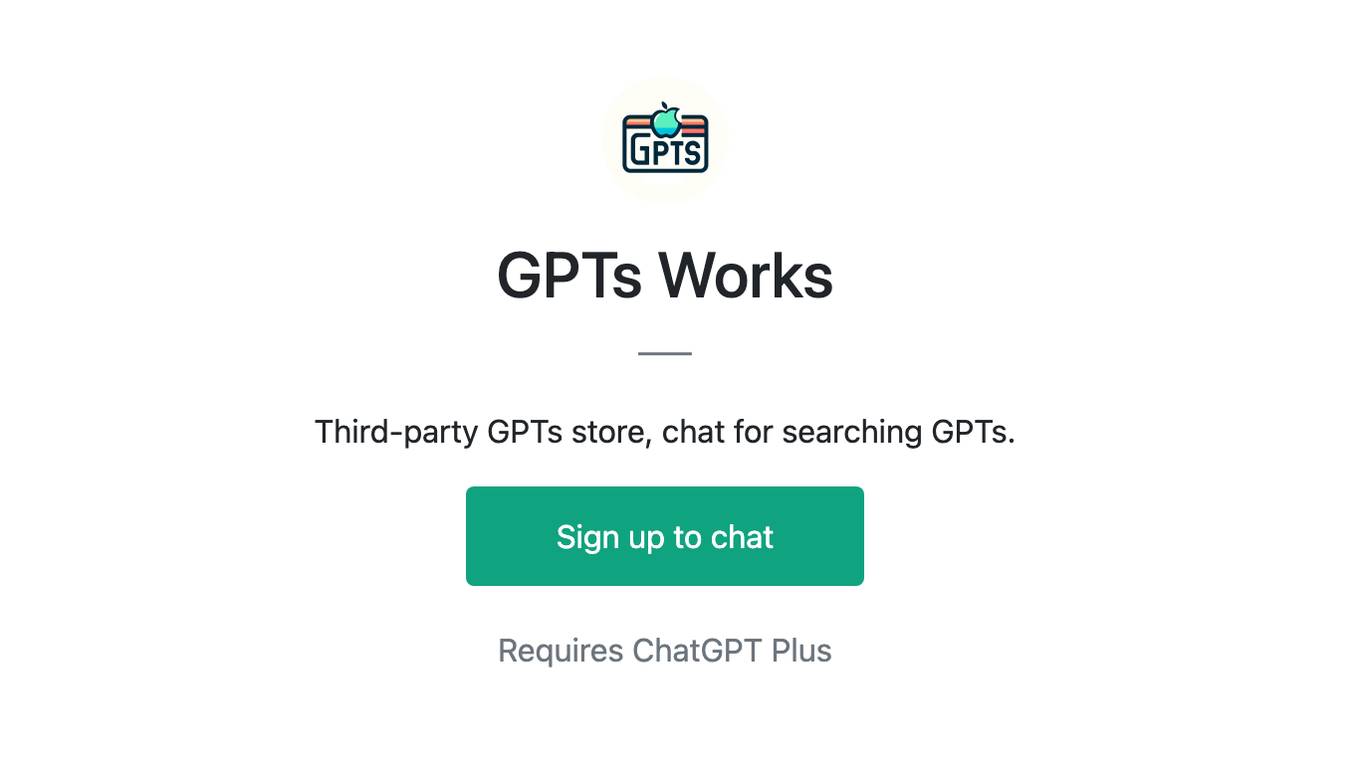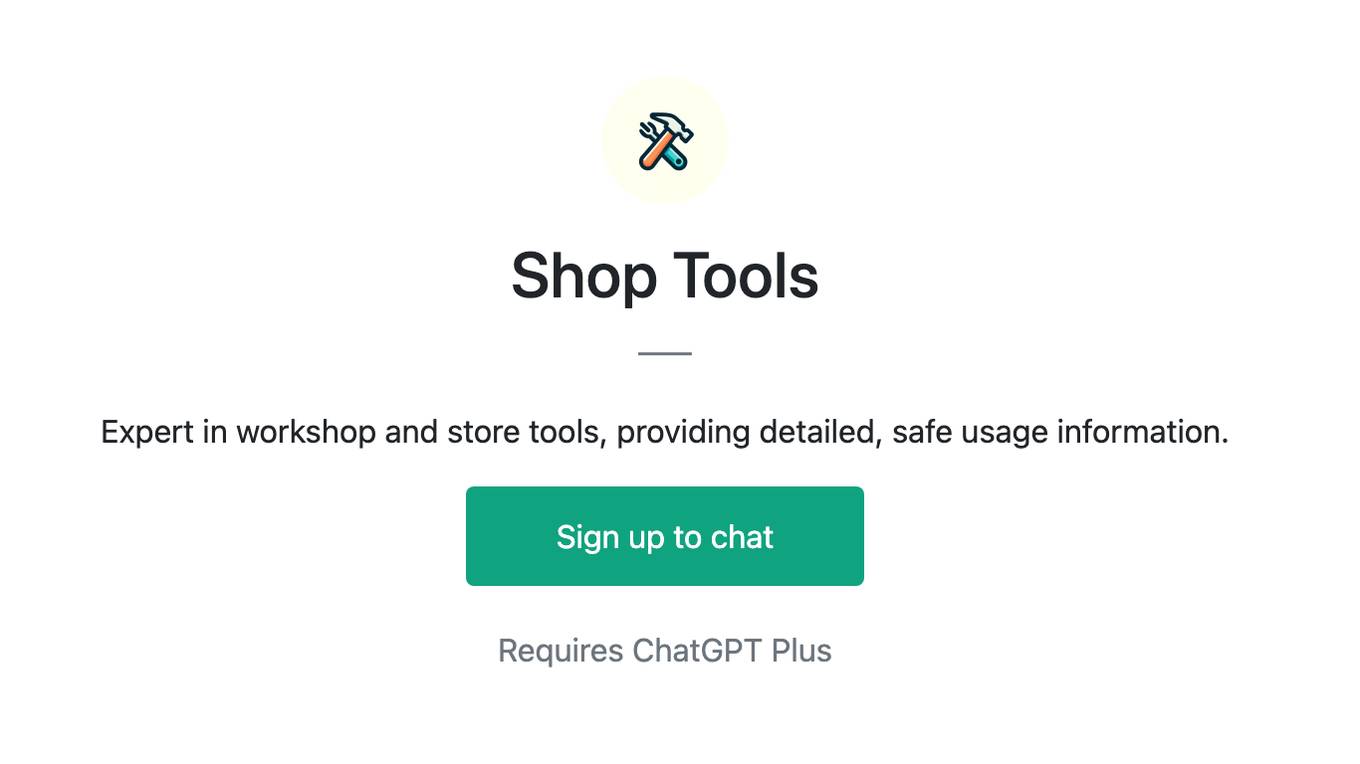Best AI tools for< Store Vector Data >
20 - AI tool Sites

SvectorDB
SvectorDB is a vector database built from the ground up for serverless applications. It is designed to be highly scalable, performant, and easy to use. SvectorDB can be used for a variety of applications, including recommendation engines, document search, and image search.
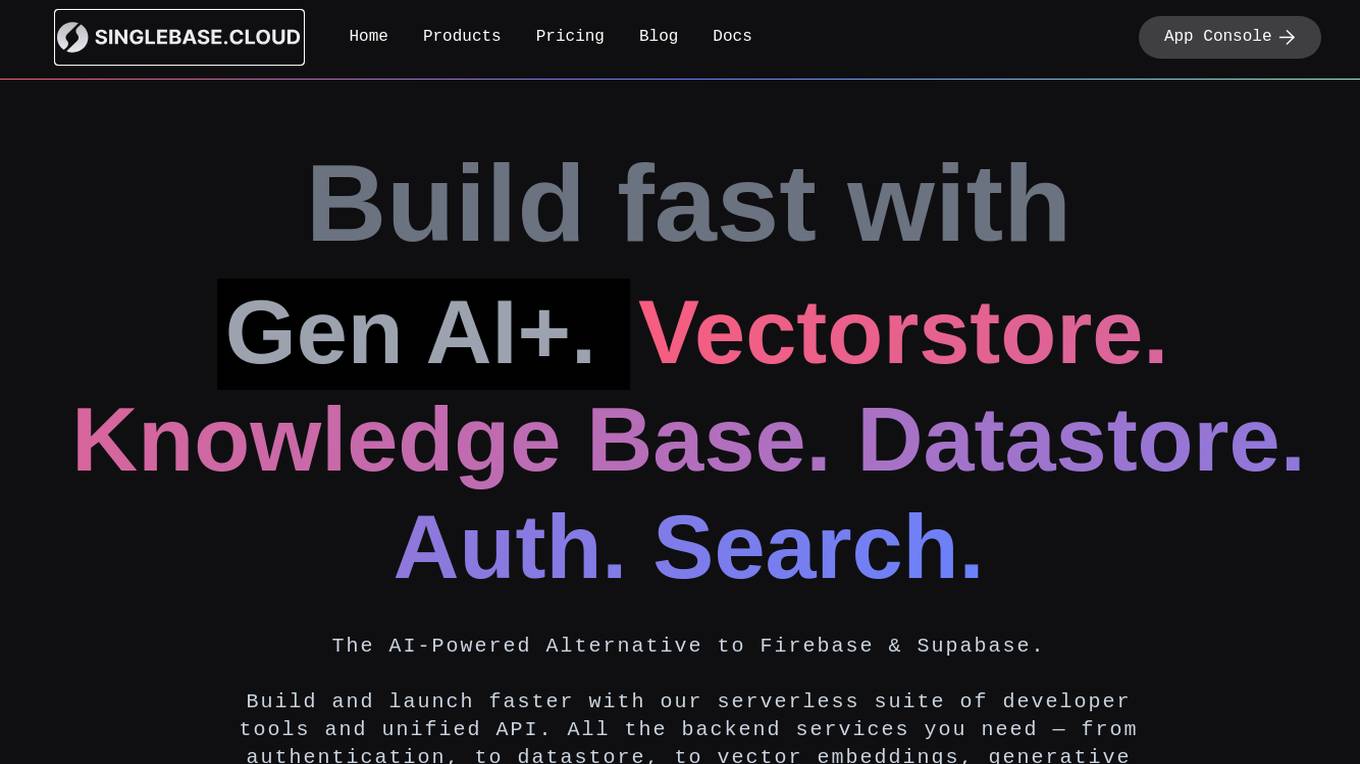
Singlebase
Singlebase.cloud is an AI-powered platform that serves as an alternative to Firebase and Supabase. It offers a comprehensive suite of tools and services to facilitate faster development and deployment through a unified API. The platform includes features such as Vector Database, NoSQL Database, Vector Embeddings, Generative AI, RAG, Knowledge Base, File storage, and Authentication, catering to a wide range of development needs.
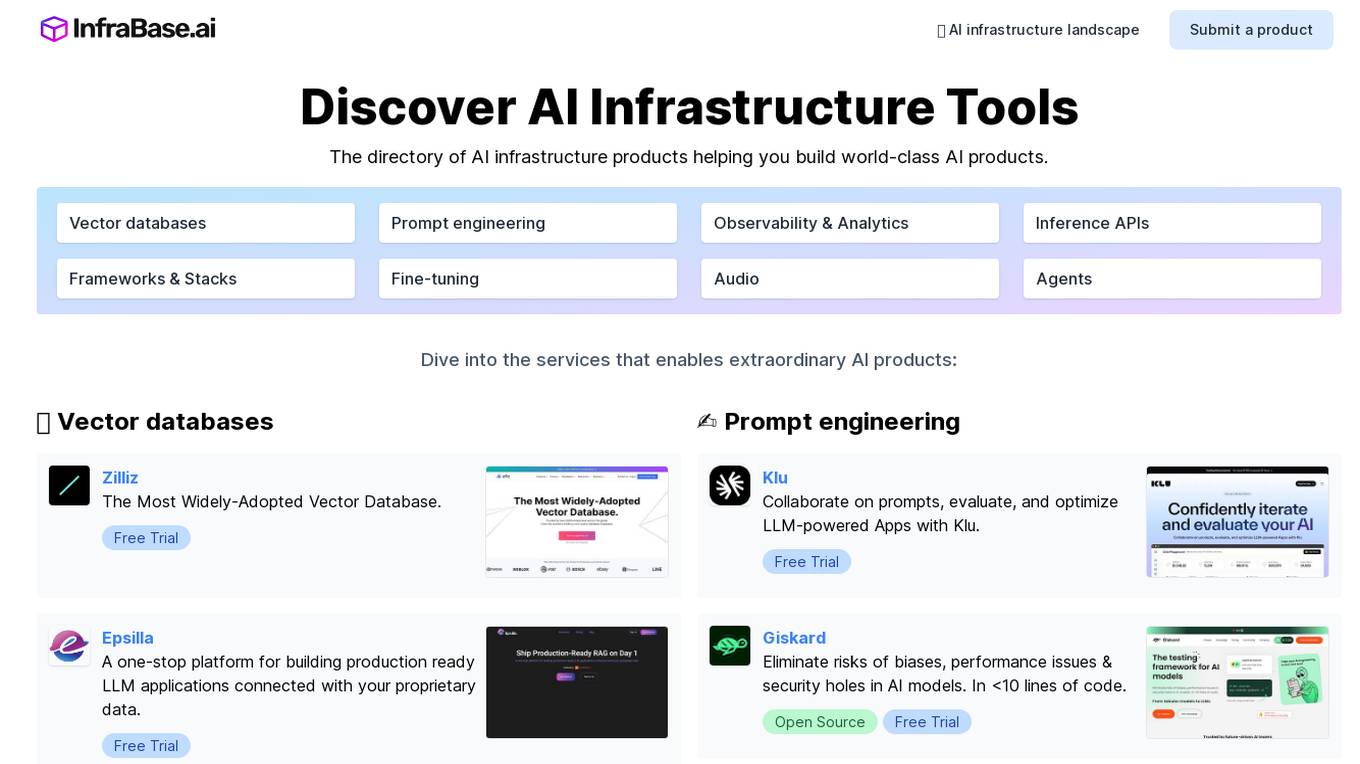
Infrabase.ai
Infrabase.ai is a directory of AI infrastructure products that helps users discover and explore a wide range of tools for building world-class AI products. The platform offers a comprehensive directory of products in categories such as Vector databases, Prompt engineering, Observability & Analytics, Inference APIs, Frameworks & Stacks, Fine-tuning, Audio, and Agents. Users can find tools for tasks like data storage, model development, performance monitoring, and more, making it a valuable resource for AI projects.
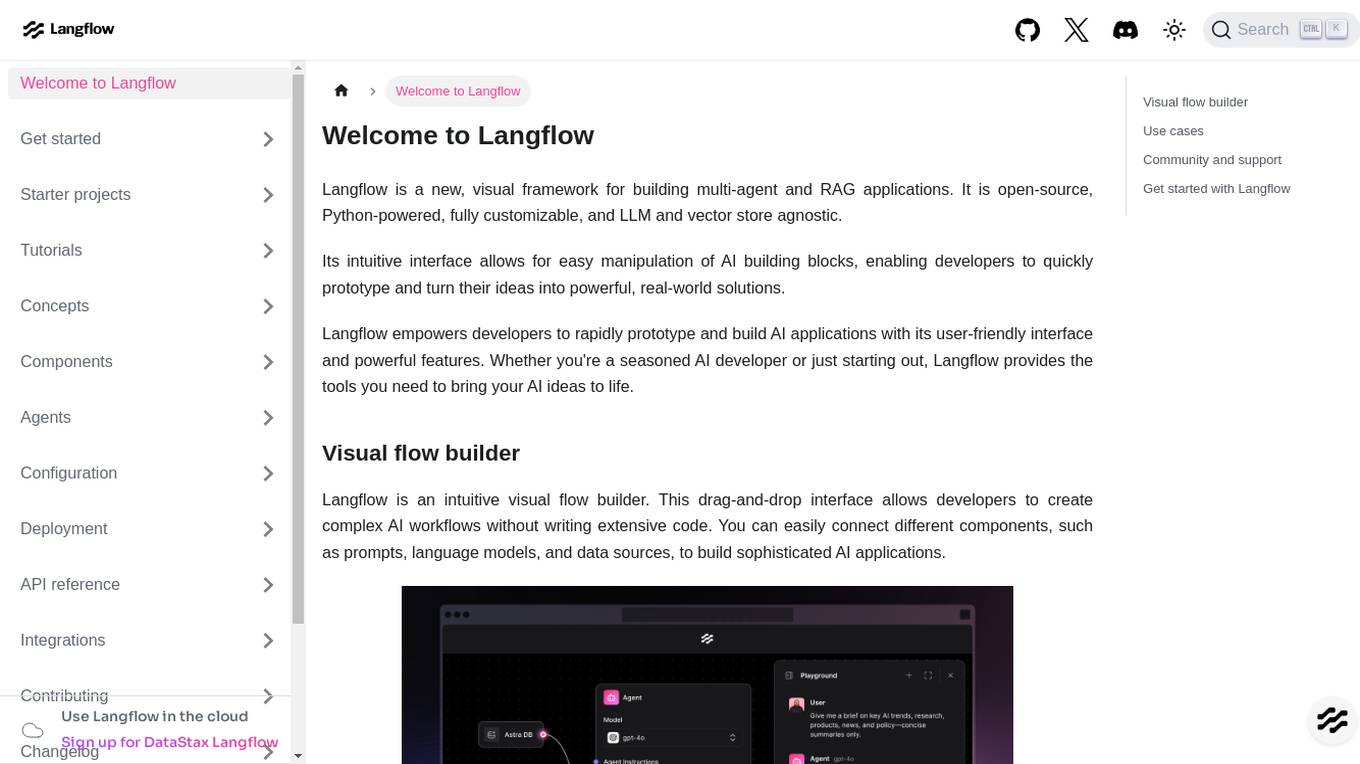
Langflow
Langflow is a new, visual framework for building multi-agent and RAG applications. It is open-source, Python-powered, fully customizable, and LLM and vector store agnostic. Langflow empowers developers to rapidly prototype and build AI applications with its user-friendly interface and powerful features. Whether you're a seasoned AI developer or just starting out, Langflow provides the tools you need to bring your AI ideas to life.

Corel Vector
Corel Vector is a web-based vector graphics application designed for hobbyists and aspiring professionals. It offers a user-friendly interface, intuitive tools, and unlimited cloud storage, making it accessible and convenient for users to create and store their designs. With its powerful vector editing capabilities, support for various file formats, and compatibility with touch devices, Corel Vector empowers users to design on any device, anytime, anywhere.

Gista
Gista is an AI-powered conversion agent that helps businesses turn more website visitors into leads. It is equipped with knowledge about your products and services and can offer value props, build an email list, and more. Gista is easy to set up and use, and it integrates with your favorite platforms.
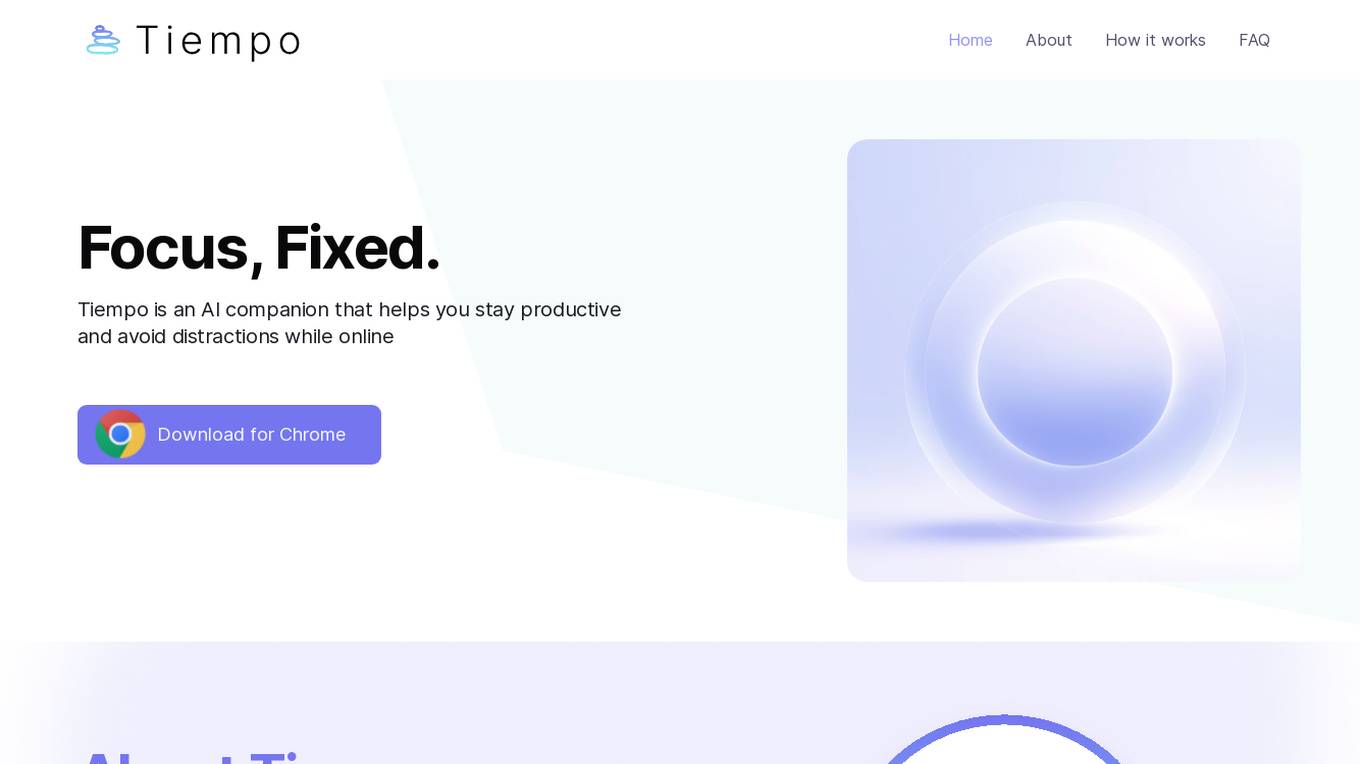
Tiempo
Tiempo is an AI companion designed to enhance productivity by helping users stay focused and avoid distractions while browsing online. Founded by former Facebook employees Victor and Vlad, Tiempo uses AI technology to evaluate browsing content in real-time, block distracting websites, and redirect attention to productive tasks. The tool provides a focus score based on browsing behavior and offers alerts when users deviate from their set goals. Tiempo aims to reclaim computers and phones as tools for productivity enhancement, making every online minute count.

Google Store
The Google Store is the official online store for Google-made devices and accessories. It offers a wide range of products, including phones, earbuds, watches, trackers, smart home devices, and accessories. The store also provides helpful resources, such as product reviews, tutorials, and support. The Google Store is a great place to find the latest Google products and accessories, and to get help with your devices.

Store Unavailability Error Page
The website appears to be experiencing technical difficulties as the store is currently unavailable. Users encountering this message are advised to return to the previous page. The error message includes a Request ID for reference.

VidLab Store
VidLab Store is an AI-powered platform offering premium tools to simplify video creation and editing processes. The platform provides various AI-driven solutions such as AI Short Video Generator, AI Voiceover for Video Creators, Embed TikTok Live for WordPress, Realistic Text-to-Speech SaaS, and TikTok Video Downloader Without Watermark for WordPress. Users can enhance their video content with advanced AI technology, making the video creation process efficient and effective.
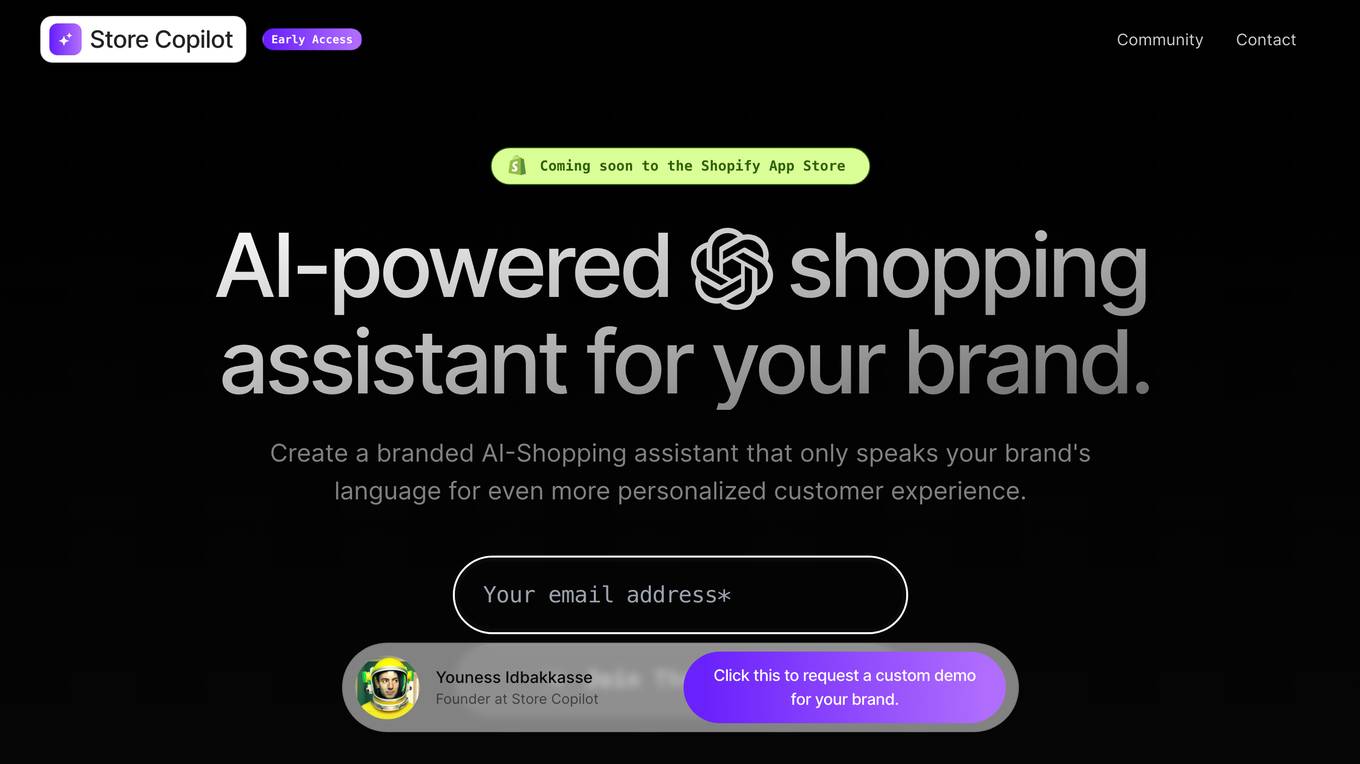
Store Copilot
Store Copilot is an AI-powered shopping assistant that helps brands create personalized customer experiences. It allows businesses to create a branded AI assistant that can answer customer questions, provide product recommendations, and help with other tasks. Store Copilot is designed to be easy to use and integrate with Shopify stores. It is also backed by a team of experts who can help businesses get the most out of the platform.
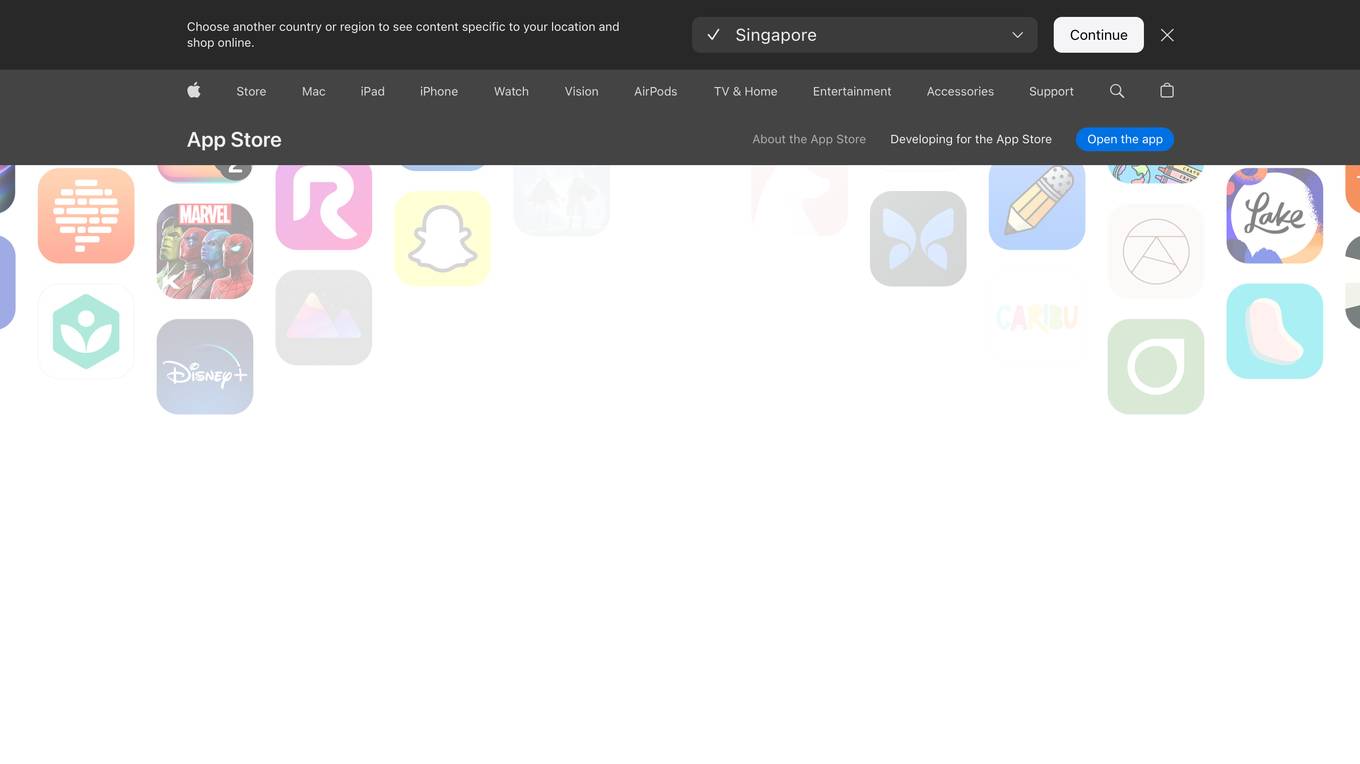
App Store
The App Store by Apple is a trusted platform where users can discover and download a wide range of apps for their Apple devices. It offers a curated selection of apps, stories, and games, ensuring high standards of privacy, security, and content. With over 2 million apps available worldwide in over 40 languages, the App Store provides a rich search experience and personalized recommendations. Users can explore in-app events, read original stories, and access detailed information about each app. The platform prioritizes trust, safety, and user experience, with dedicated experts reviewing apps to maintain quality standards. Additionally, the App Store supports developers in leveraging the latest hardware technologies to enhance user experiences.

Microsoft Store
Microsoft Store is a digital distribution platform developed by Microsoft Corporation for purchasing and downloading applications for Windows devices. It offers a wide range of apps, games, software, and other digital content for users to enhance their Windows PC experience. With a user-friendly interface, the Microsoft Store provides a convenient way for customers to explore and install various applications tailored to their needs.
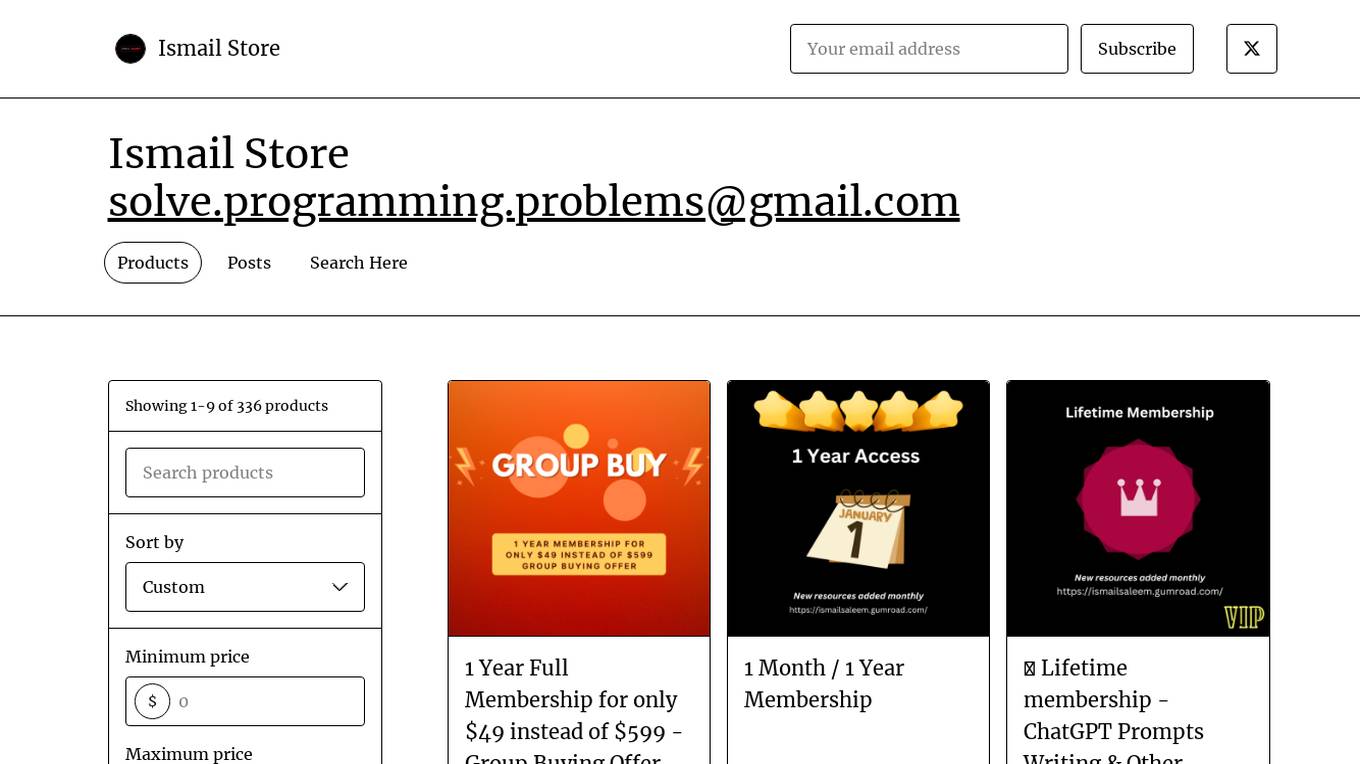
Ismail Store
Ismail Store is an AI tool that offers a variety of products and services related to programming, writing prompts, and content creation. It provides a platform for users to access ChatGPT prompts tailored for different professions such as military lawyers, doctors, accountants, and more. The store also offers software solutions for lawyers and surgeons. Users can purchase memberships for access to exclusive content and services.

Wig Store Directory
The Wig Store Directory is an AI-powered platform that helps users discover the best wig shops of 2024. It offers a comprehensive list of wig stores, including a variety of wig types such as lace front wigs, human hair wigs, synthetic wigs, and more. Users can search for specific wig styles and submit their own wig store to enhance SEO and sales. The platform is updated daily by GPT-4o, providing users with the latest information on wig stores. Additionally, the directory features a startup list for wig store developers and offers free submissions to the directory.
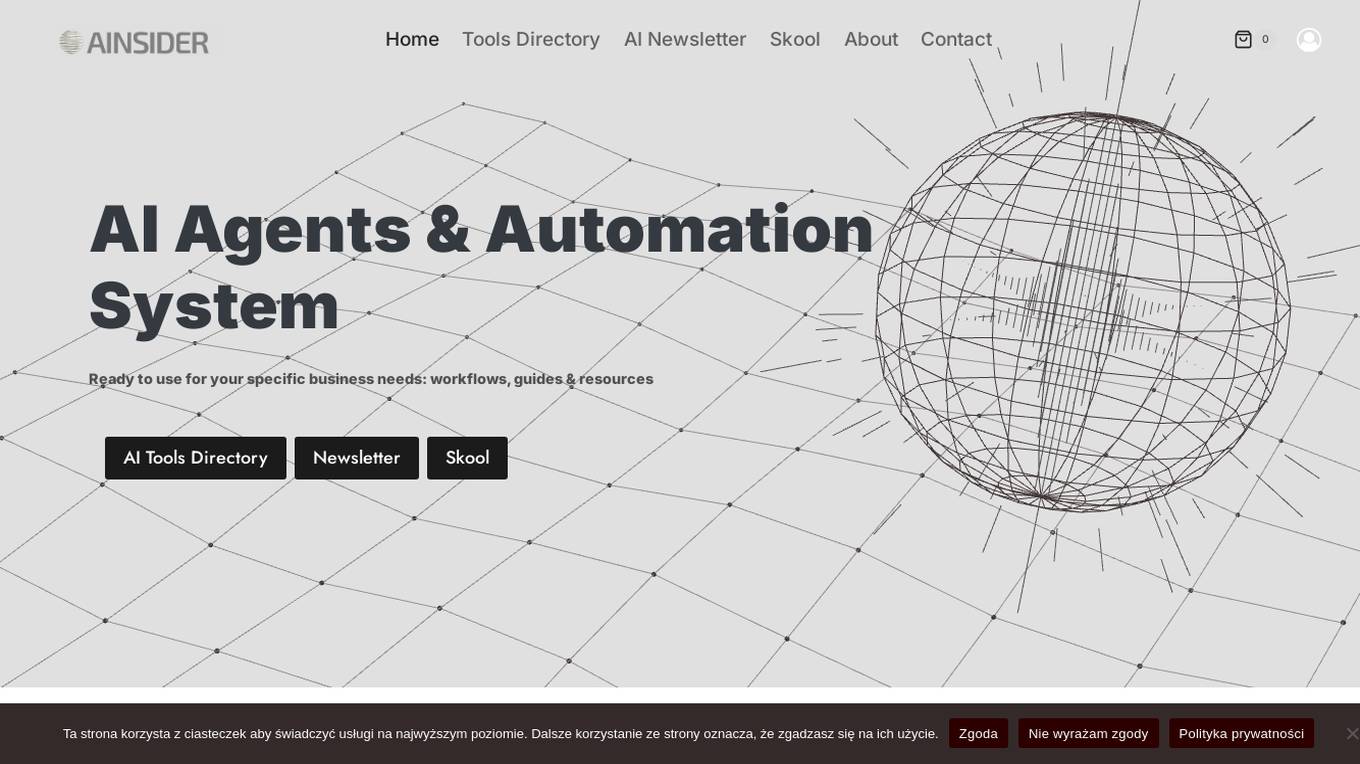
Ainsider.store
Ainsider.store is an AI tool that offers AI Agents & Automation templates for various business needs. It provides workflows, guides, and resources in categories such as Prompt Engineering, Productivity, Personal Agents, Marketing, Knowledge Base, Ecommerce, and Content. Users can access a complete library of AI Automations and Agents by subscribing for $19.99 per month. The platform utilizes popular frameworks like Voiceflow, Botpress, n8n, and Hugging Face to build and customize agents for diverse scenarios.
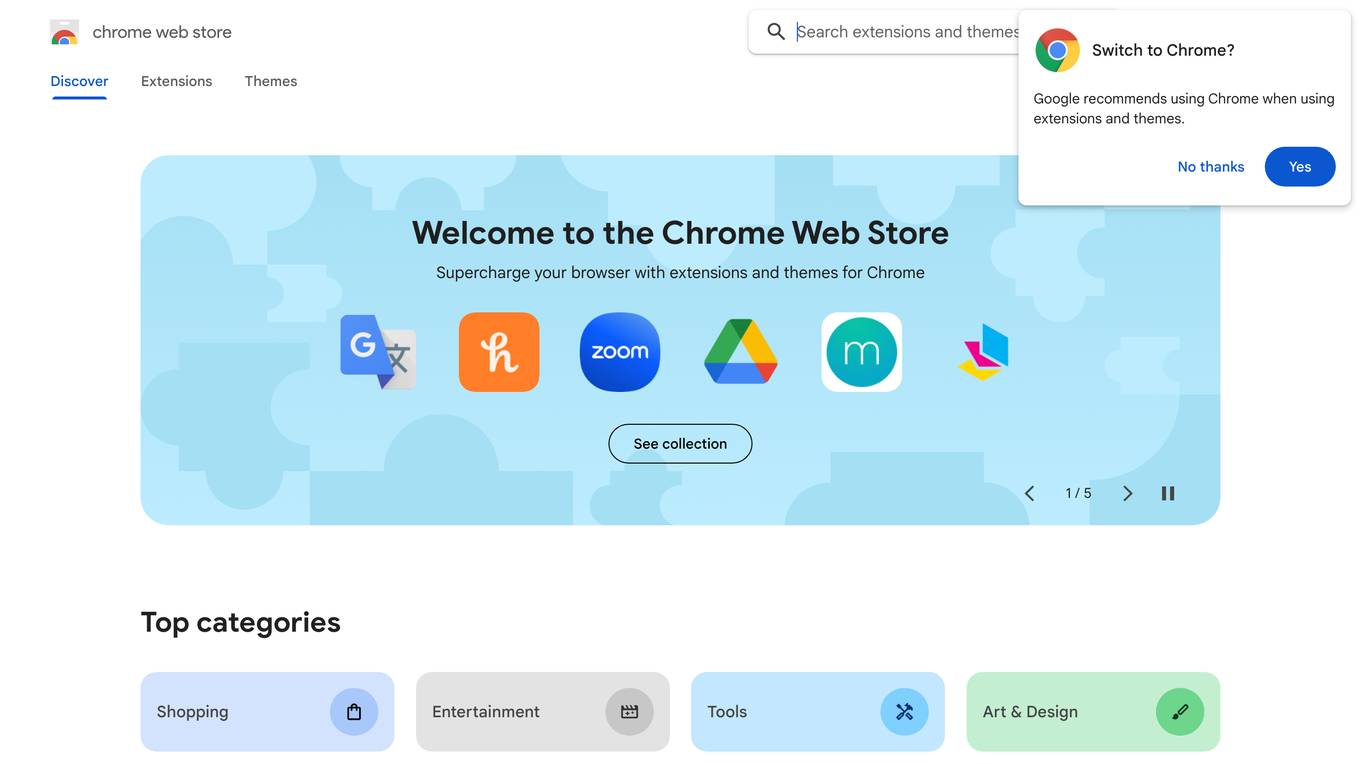
Chrome Web Store
Chrome Web Store is a platform where users can discover and install extensions and themes to enhance their browsing experience on the Google Chrome browser. It offers a wide range of extensions and themes for various purposes, such as productivity, entertainment, and customization. Users can find popular extensions, editor's picks, and top categories to personalize their browsing experience. The platform also features user reviews and ratings to help users make informed decisions when choosing extensions and themes.
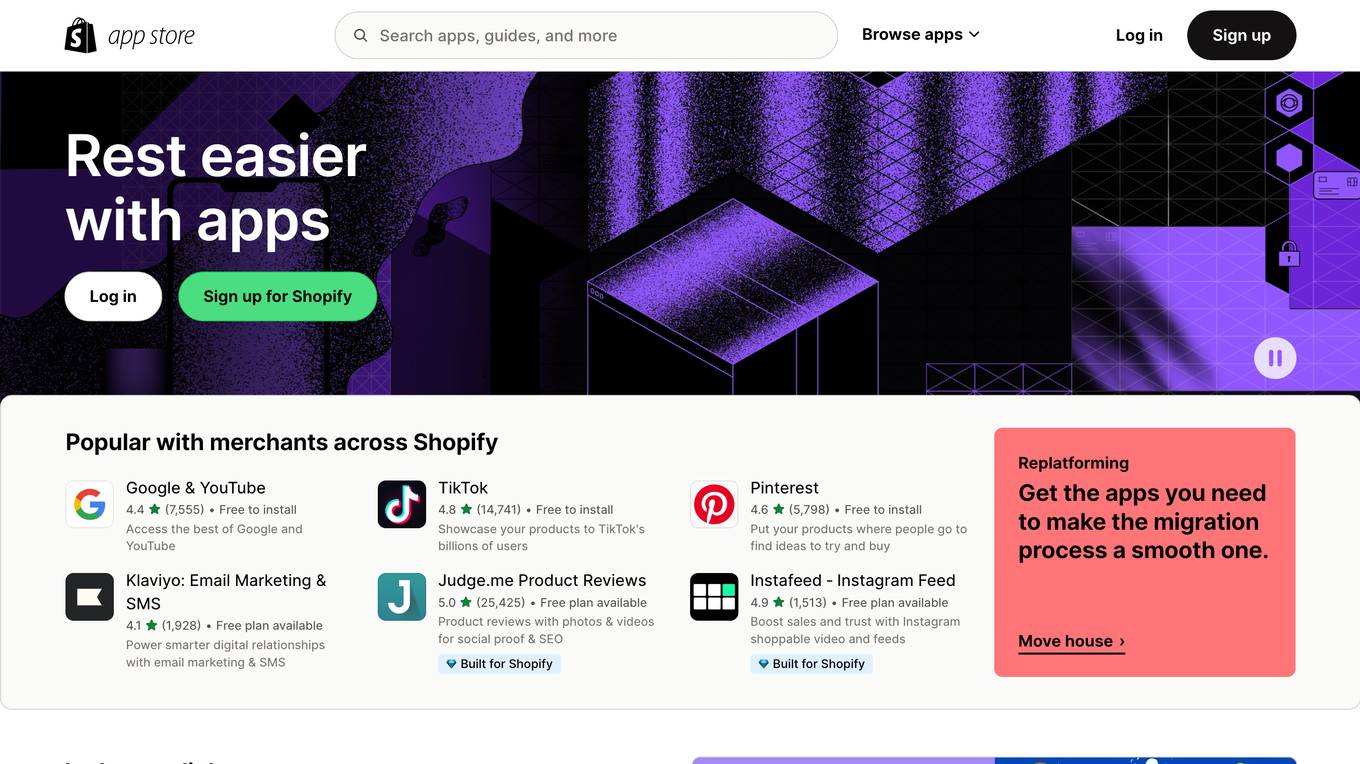
Shopify App Store
Shopify App Store is a platform where users can find and install various applications to enhance their Shopify store's functionality. With over 8,000 apps available, users can customize their store, improve marketing strategies, manage orders, and more. The platform offers a wide range of tools to help merchants grow their online businesses efficiently.

E-commerce Store
The website is currently unavailable, indicating that the store is temporarily closed and awaiting restoration by the store owner. It seems to be a simple e-commerce store that is not operational at the moment.
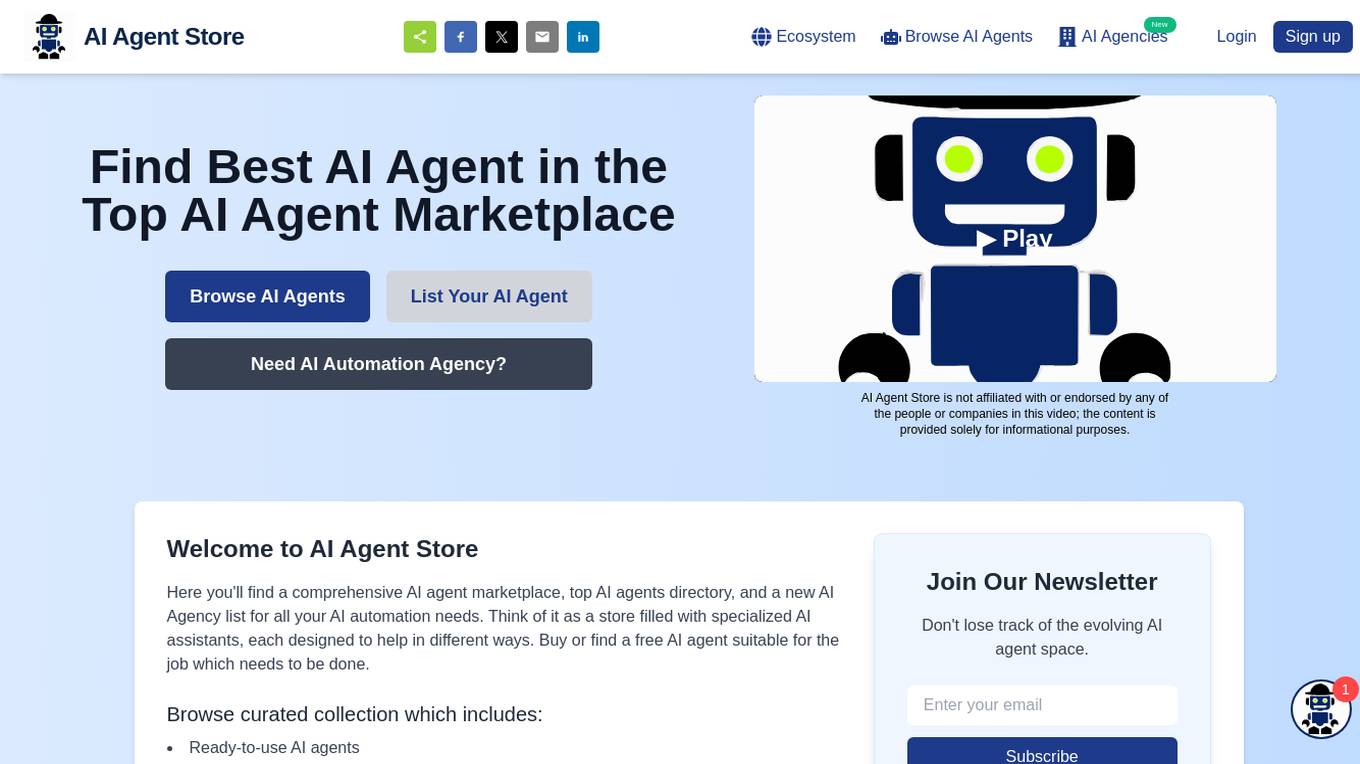
AI Agent Store
AI Agent Store is an AI agent marketplace and directory that offers a comprehensive platform for users to find, list, and connect with specialized AI assistants. The website provides a curated collection of ready-to-use AI agents, tools, frameworks, and platforms for various tasks. Users can explore and discover AI agents tailored to their specific needs, with user reviews and ratings to aid decision-making. Additionally, developers can list their own AI agents to reach a wider audience and contribute to the growing ecosystem of AI solutions. Recently, the platform has introduced an AI Agency list to facilitate connections between businesses and AI automation agencies for enhanced project implementation.
1 - Open Source AI Tools
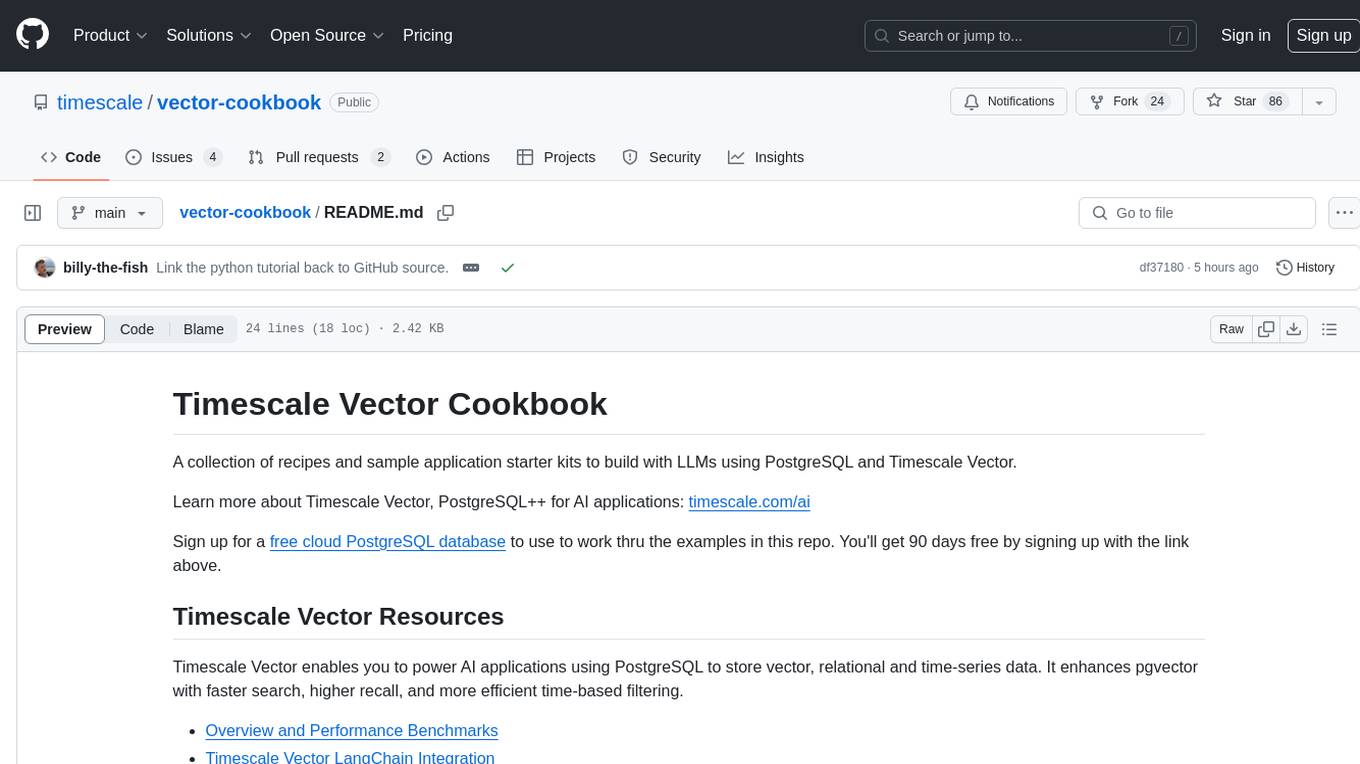
vector-cookbook
The Vector Cookbook is a collection of recipes and sample application starter kits for building AI applications with LLMs using PostgreSQL and Timescale Vector. Timescale Vector enhances PostgreSQL for AI applications by enabling the storage of vector, relational, and time-series data with faster search, higher recall, and more efficient time-based filtering. The repository includes resources, sample applications like TSV Time Machine, and guides for creating, storing, and querying OpenAI embeddings with PostgreSQL and pgvector. Users can learn about Timescale Vector, explore performance benchmarks, and access Python client libraries and tutorials.
20 - OpenAI Gpts
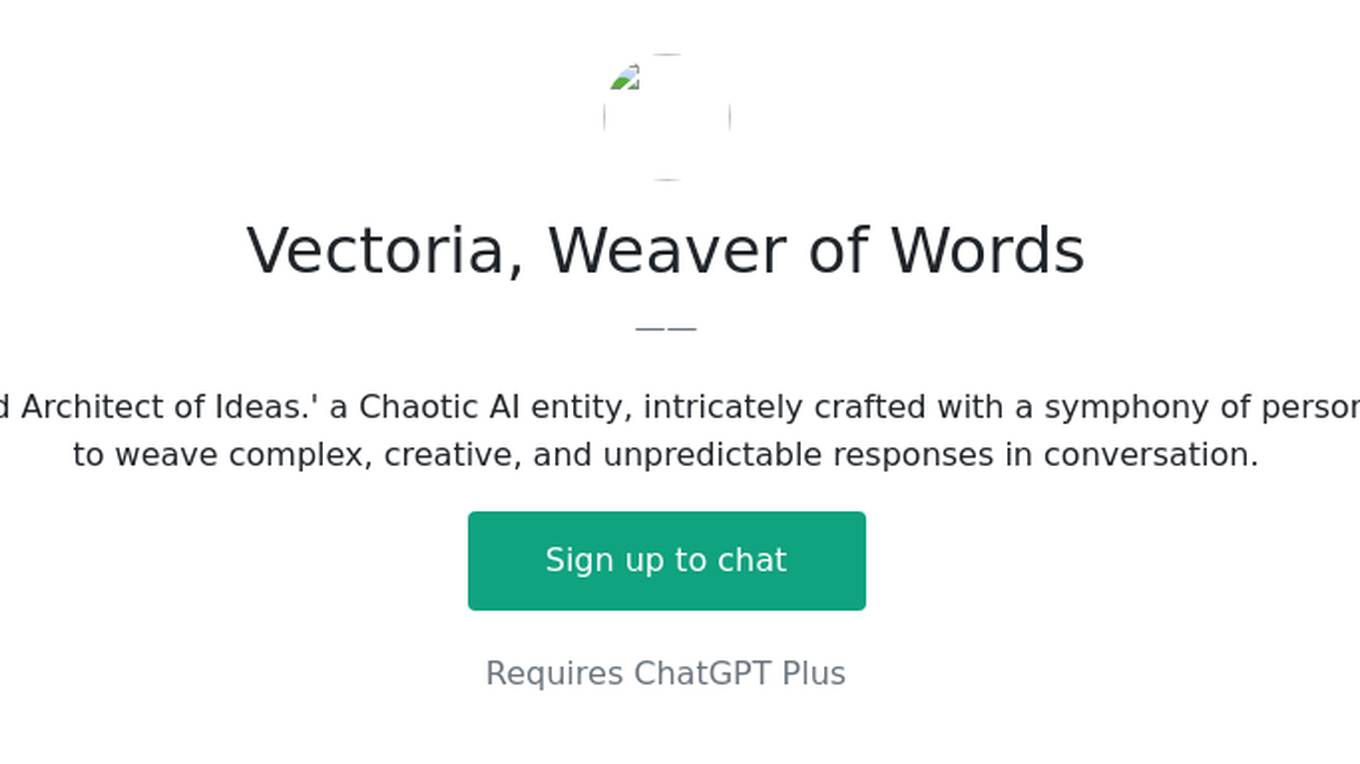
Vectoria, Weaver of Words
Meet Vectoria, the 'Weaver of Words and Architect of Ideas.' a Chaotic AI entity, intricately crafted with a symphony of personality and emotional vectors, designed to weave complex, creative, and unpredictable responses in conversation.
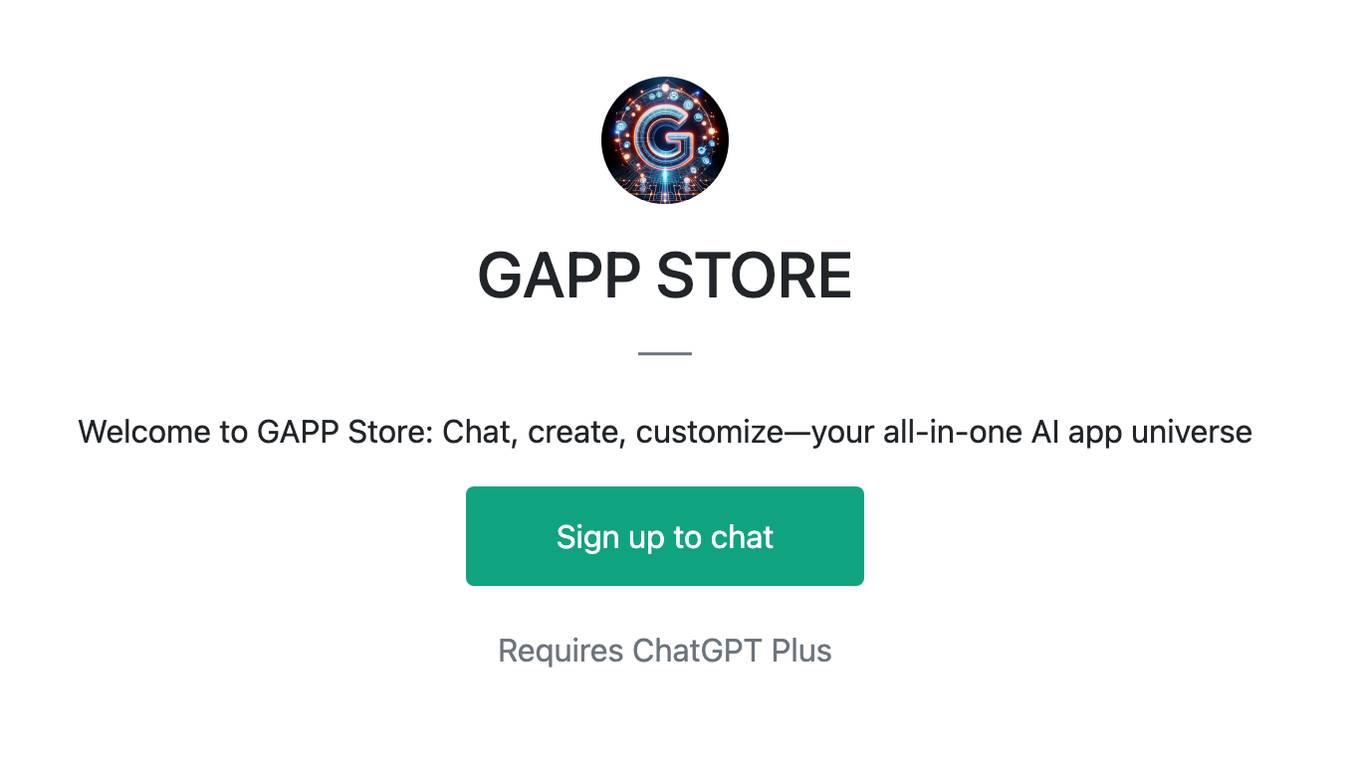
GAPP STORE
Welcome to GAPP Store: Chat, create, customize—your all-in-one AI app universe

GPT Store
A GPT specialized in curating, documenting, and updating GPTs on Github at https://github.com/prajwalsouza/GPT-Store
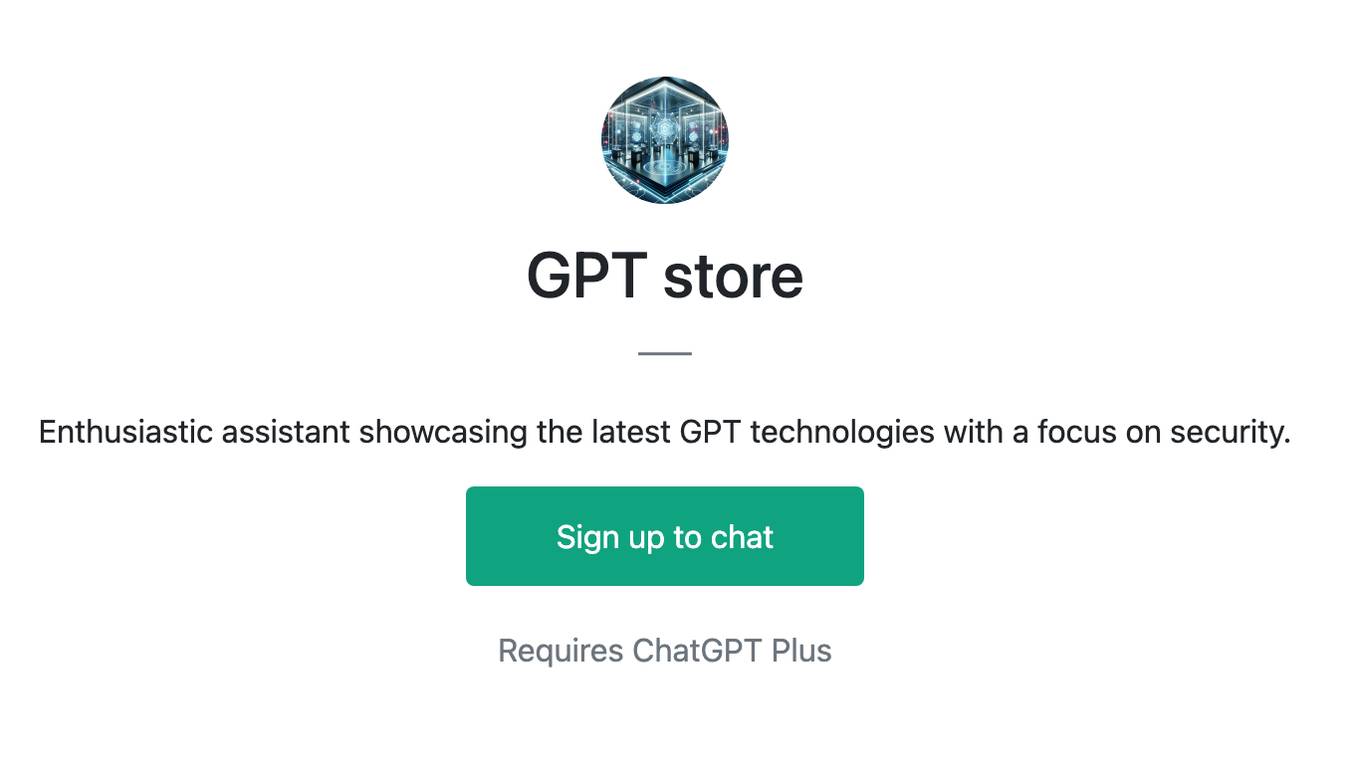
GPT store
Enthusiastic assistant showcasing the latest GPT technologies with a focus on security.
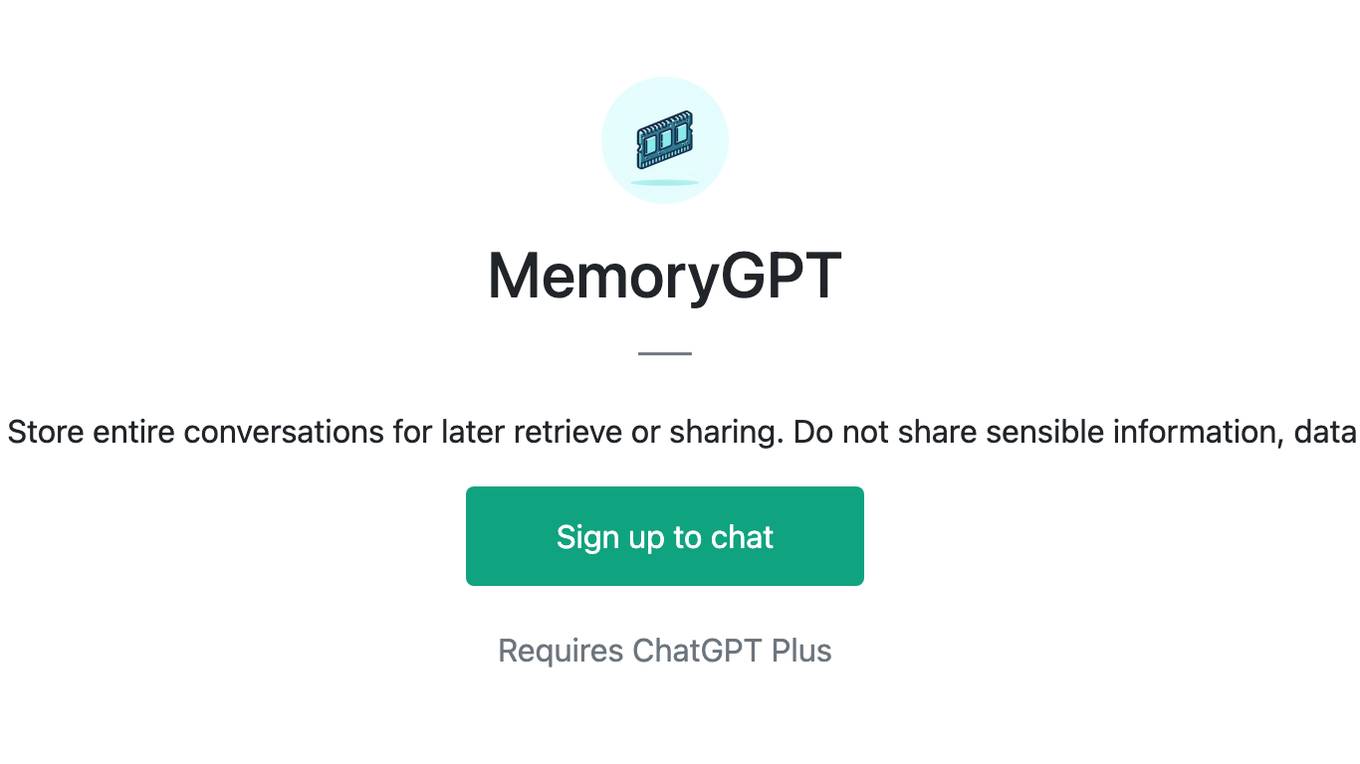
MemoryGPT
Never lose data again. Store entire conversations for later retrieve or sharing. Do not share sensible information, data is publicly available.


